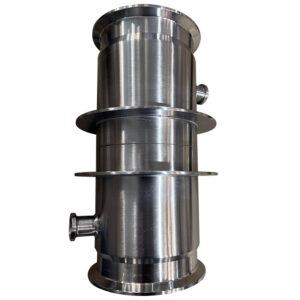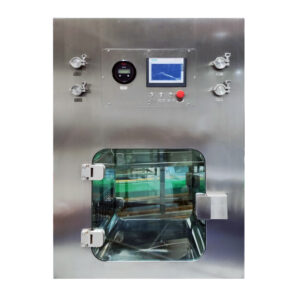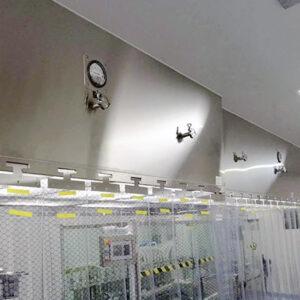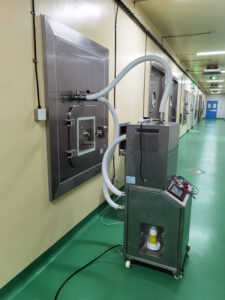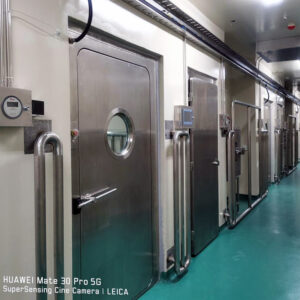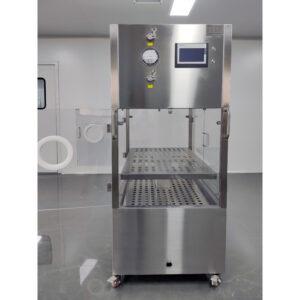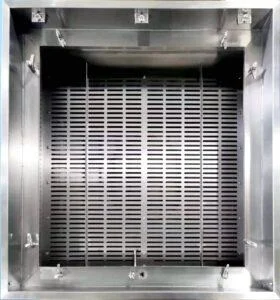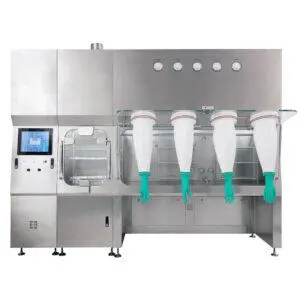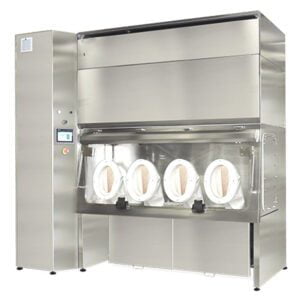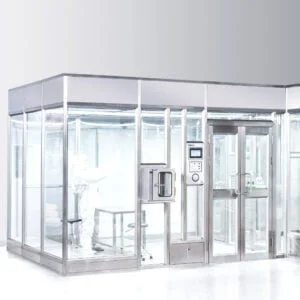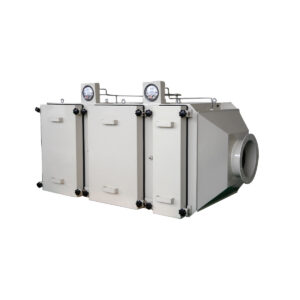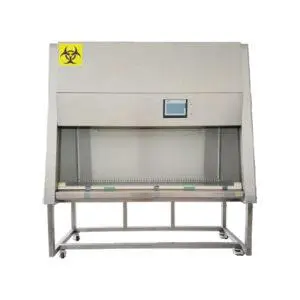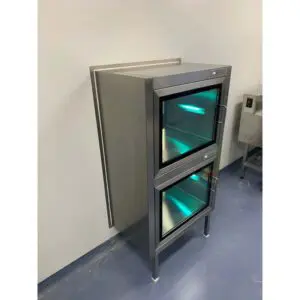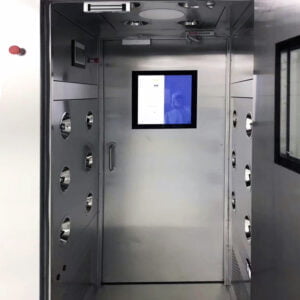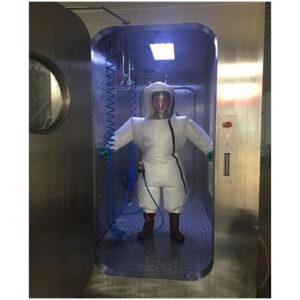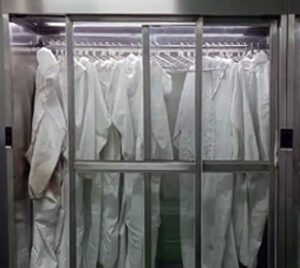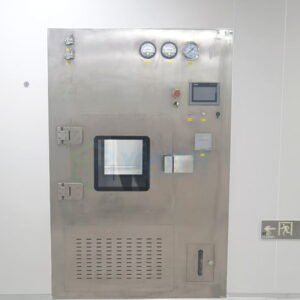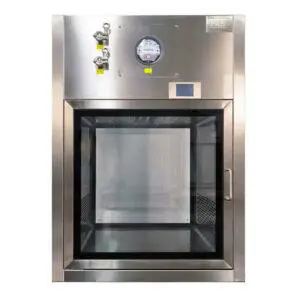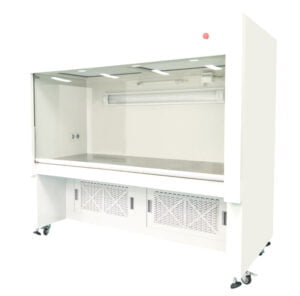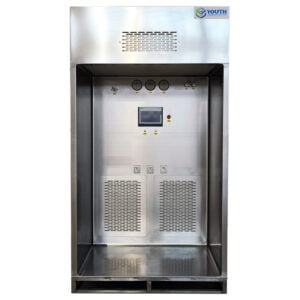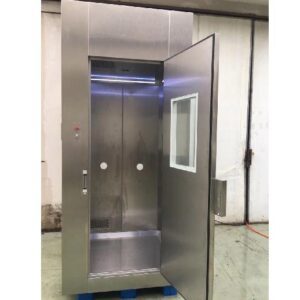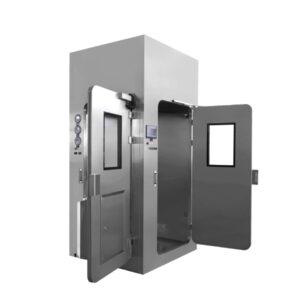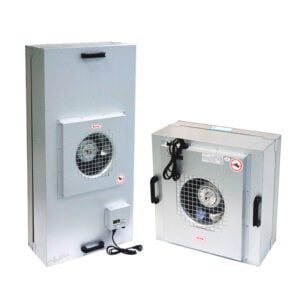Introduction to Weighing Booths
In the world of industrial and laboratory accuracy, weighing booths play an indispensable role. Also known as weigh booths or weigh stations, these controlled environments are designed to ensure the most precise measurements and prevent contamination. Whether in pharmaceutical production, chemical manufacturing, food processing, or research laboratories, the reliability of a weighing booth can be the difference between success and failure. Understanding what a weighing booth is and its pivotal role in various industries is crucial for anyone involved in precise weighing and measurement processes.
Key Features of Weighing Booths
Weighing booths are engineered with several key features to ensure accuracy and safety:
a. Controlled Environment: Equipped with advanced ventilation and air filtration systems, these booths maintain a controlled atmosphere to prevent dust, particulates, and contaminants from affecting measurements.
b. Isolation: Weighing booths often incorporate design elements that isolate either the operator or the material being weighed, mitigating external factors that could impact the accuracy of measurements.
c. Anti-static Measures: Especially critical when dealing with powders or materials prone to static charge, many booths include anti-static features to ensure static electricity does not compromise measurement accuracy.
d. Lighting: Proper illumination within a weighing booth is essential for precise measurements, allowing operators to see clearly and avoid errors.
e. Precision Weighing Equipment: These booths house high-precision weighing scales and balances, which vary in capacity and sensitivity to suit different applications.
f. Safety Measures: To protect operators and preserve the integrity of the measurements, safety features like alarms, emergency shut-off systems, and interlocks are often integrated into booth designs.
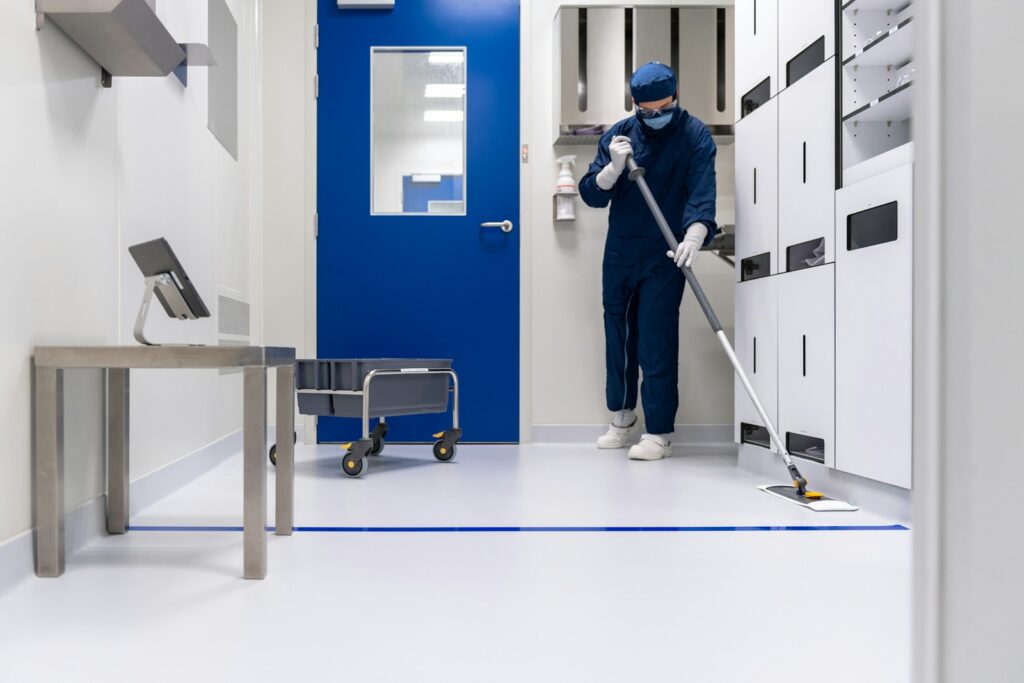
Applications in Different Industries
The application of weighing booths spans across multiple industries, each with its specific requirements:
a. Pharmaceuticals: In this sector, weighing booths are vital for quality control and accurate formulation of medications, where even the slightest discrepancy can have significant implications.
b. Chemical Manufacturing: Accurate chemical measurements are crucial for safety and product efficacy, making weighing booths essential in this industry.
c. Food Production: Precision in weighing ingredients is key to maintaining consistent quality and adhering to regulatory standards in food processing.
d. Research Laboratories: Experimental accuracy in laboratories relies heavily on the precision provided by weighing booths, ensuring the reliability of research outcomes.
Choosing the Right Weighing Booth
Selecting the appropriate weighing booth involves considering various factors such as the specific needs of the application, capacity, sensitivity, and compliance with industry standards. Understanding these requirements is crucial for choosing a booth that not only meets but exceeds expectations in terms of accuracy and reliability.
Maintenance and Safety Protocols
Maintaining a weighing booth is essential for its optimal performance and longevity. Regular cleaning, calibration of equipment, and adherence to safety protocols ensure the booth continues to function at its best. Operators must be trained in best practices for using and maintaining the booth, ensuring both accuracy and safety in its operation.
Advancements and Innovations in Weighing Booth Technology
The field of weighing booth technology is continuously evolving, with new advancements enhancing precision, safety, and user-friendliness. Innovations in filtration systems, anti-static materials, and ergonomic design are just some of the developments that are shaping the future of weighing booths.
Conclusion
Weighing booths are a cornerstone in industries where precision and safety are paramount. Understanding their features, applications, and best practices is key to leveraging their benefits fully. As technology continues to advance, weighing booths will undoubtedly play an increasingly vital role in maintaining accuracy and safety in critical industrial and laboratory processes.
FAQ
- What is a weighing booth and why is it important? A weighing booth, also known as a weigh booth or weigh station, is a controlled environment used in industrial and laboratory settings for accurate weighing and measurement of materials. Its importance lies in its ability to provide precise measurements and prevent contamination, which is crucial in industries like pharmaceuticals, chemical manufacturing, food production, and research laboratories.
- What are the key features of a weighing booth? Key features of a weighing booth include a controlled environment with ventilation and air filtration systems, isolation to prevent external interference, anti-static measures, adequate lighting, precision weighing equipment, and integrated safety measures like alarms and emergency shut-offs.
- How does a weighing booth ensure accurate measurements? A weighing booth ensures accurate measurements by providing a controlled environment that minimizes the impact of external factors such as air currents, dust, and contaminants. It also often includes precision weighing equipment calibrated for high accuracy, and anti-static measures to prevent static interference.
- In what industries are weighing booths commonly used? Weighing booths are commonly used in industries where precise measurements are critical, such as pharmaceutical manufacturing, chemical production, food processing, and scientific research. They are essential for quality control, formulation accuracy, and maintaining regulatory compliance.
- What should be considered when choosing a weighing booth? When choosing a weighing booth, factors to consider include the specific requirements of your application (such as the type of material being weighed), the capacity and sensitivity of the weighing equipment, compatibility with other lab or industrial equipment, and the booth’s safety features and ergonomic design.
Related Contents:
- The Essential Role of YOUTH Weighing Booths
- What is the Difference Between a Weighing Booth and a Dispensing Booth?
- Bag-In/Bag-Out (BIBO) Systems: Operation and Maintenance Guide
- The Ultimate Guide to Dispensing, Sampling, and Weighing Booths: Ensuring Precision and Safety with YOUTH
- Specialized Cleanroom Booths by YOUTH: Ensuring Precision and Safety
- Cleanroom Booths: A Comprehensive Guide to YOUTH’s Dispensing, Sampling, and Weighing Booths
- What is the purpose of a static pass box?
- Cleanrooms in Action: Applications and Success Stories
- The Best Weighing Booths for Cleanroom Applications

